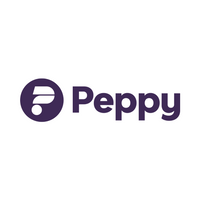Why menopause support is no longer optional for employers
Today, menopause is firmly a workplace issue, with employers waking up to the opportunity to strengthen retention, productivity, and equity. And with the Employment Rights Bill (ERB) set to put menopause squarely on the legal agenda, now is the moment to get ahead.
The business case is undeniable
Menopause is already showing up in your organisation’s data - in absence rates, attrition figures, engagement scores, and your gender pay gap.
Research shows:
- 1 in 10 employees leave work due to unmanaged menopause symptoms.
- Tribunal claims citing menopause have tripled in the past two years, with average payouts often exceeding £60,000. A clear signal that employees are expecting more from their employers.
- The UK economy is already losing billions each year in productivity costs linked to menopause. For HR and benefits leaders under pressure to protect budgets and deliver ROI, the smart money is on getting ahead of this.
Prevention beats reaction
The smartest organisations aren’t waiting for tribunals or ERB deadlines to force their hand. They’re acting early, embedding proactive support and preventative care.
This creates measurable advantages:
- Retention of senior female talent, where replacement costs often exceed £30,000 per role.
- Lower absence and work impairment through timely clinical interventions.
- Stronger engagement scores, particularly among women aged 45–55 — the fastest-growing workforce demographic.
Menopause support done well is a strategy that drives business performance.
What meaningful support looks like
Too often, employers stop at awareness campaigns or a tick-box policy. While these are good starting points, they don’t shift the dial on their own.
High-performing organisations go further with:
- Confident, trained managers who know how to respond with empathy and practical support.
- Access to specialist clinicians for advice, treatment, and personalised care.
- Inclusive resources that reflect diverse experiences — from Black women and neurodivergent employees to trans and non-binary people. No two people experience menopause in the same way.
- Lifestyle medicine approaches (covering sleep, nutrition, exercise, and mental health) that address the root causes of symptoms.
This is how menopause support becomes embedded in culture and performance.
The urgency of the Employment Rights Bill
The ERB, introduced in October 2024, is clear: by 2027, employers with over 250 employees will be required to publish Menopause Action Plans. That’s a landmark shift. But employers should start preparing now, using the ERB as a catalyst to advance support, not scramble at the last minute. The next two years are a real window of opportunity.
Employers who act now can position themselves as leaders in prevention, inclusion, and employee wellbeing, and stay well ahead of the curve.
A practical way forward
With so many pressures on HR right now, we know it can feel overwhelming. Given these pressures, and the opportunity a more proactive approach creates, we’ve built a practical Menopause Toolkit for HR. It’s a hands-on 40+ page playbook that makes action achievable, step by step.
The toolkit includes:
- Checklists, quizzes, and a 30/60/90 roadmap to help you assess gaps and plan next steps.
- Expert clinical insights from Peppy’s practitioners, with over 1,500 years of combined experience.
- Case studies and lessons from leading employers already ahead of the curve.
- Guidance on the ERB, and what it means for HR teams today.
This is a boardroom-ready resource you can use to strengthen business cases, engage leadership, and embed practical support that really makes a difference.
Final word Menopause is already reshaping the workplace. The only question is whether employers will choose to react later, or act early, prevent problems, and unlock huge performance gains.
Download your copy of the Menopause Toolkit for HR.
Supplied by REBA Associate Member, Peppy
Peppy is a global app-based employee benefit giving employees access to expert clinical care in menopause, fertility, pregnancy, and more - trusted by 250+ companies and reaching over 3 million people.








